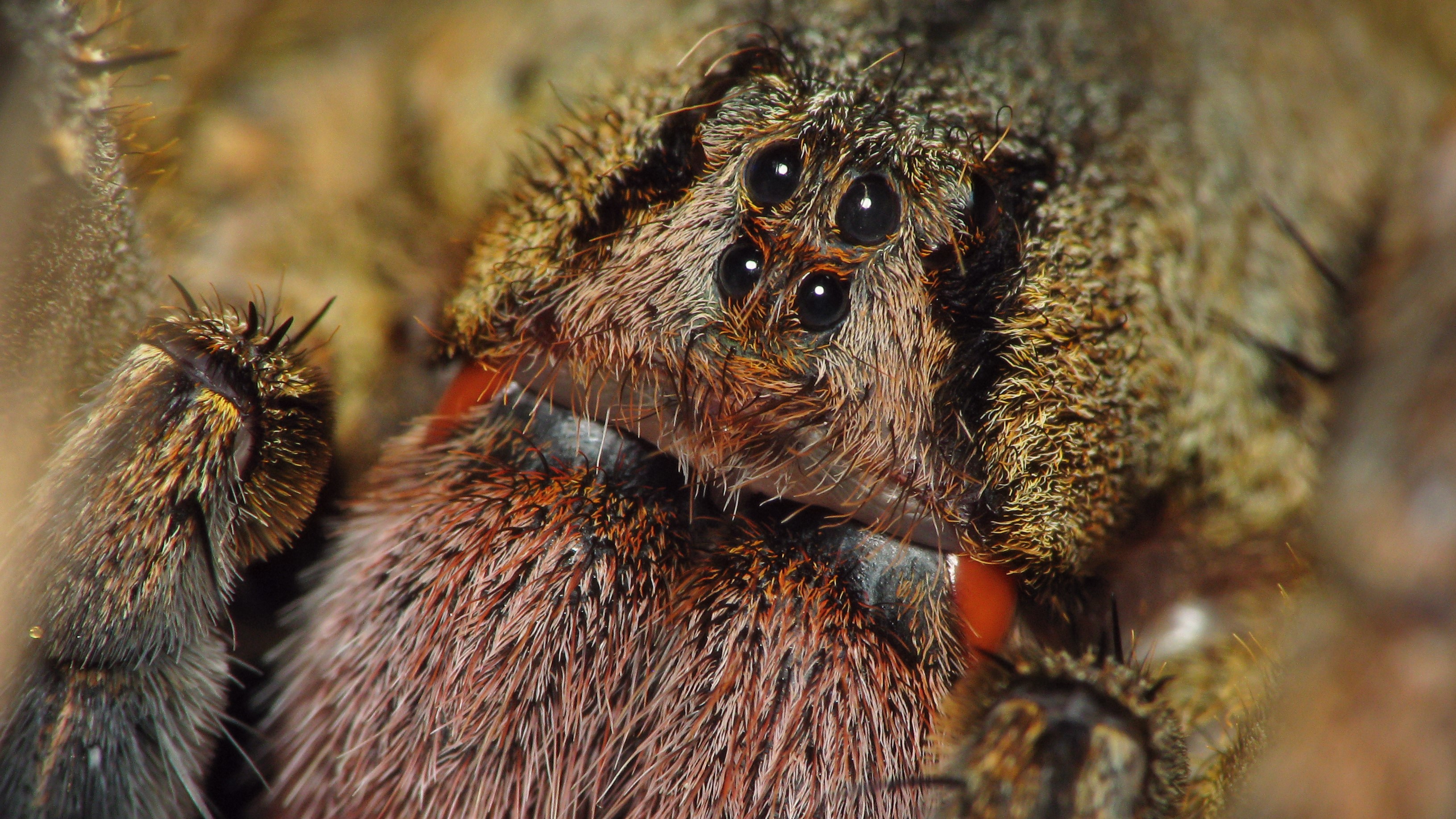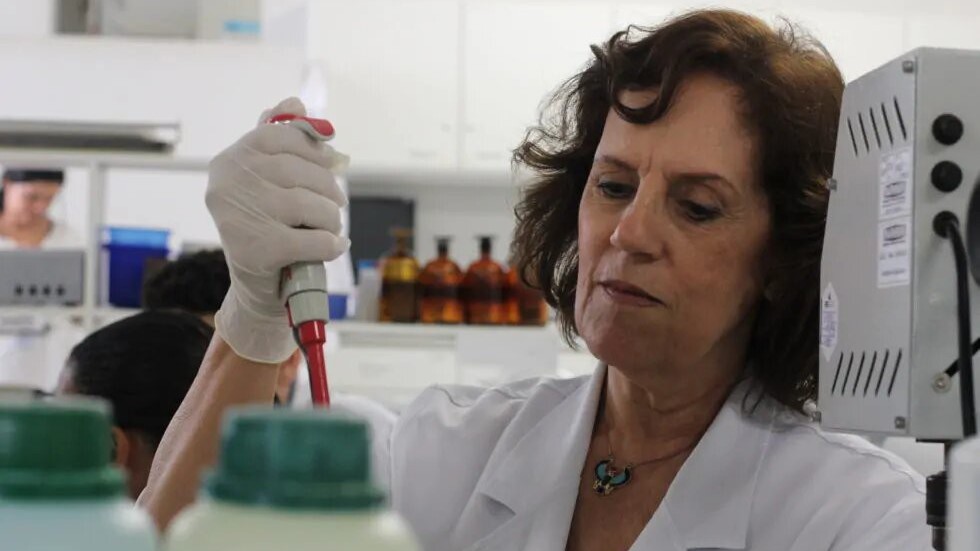Move over, Viagra — this spider's boner-inducing venom could treat people let down by the blue pill
Scientists say a synthetic compound derived from Brazilian wandering spider venom could treat people with erectile dysfunction for whom drugs like Viagra don't work.
A spider whose venom triggers prolonged and painful erections may hold the key to more inclusive treatments for erectile dysfunction, scientists in Brazil report.
The researchers are testing a new drug derived from the venom of the Brazilian wandering spider (Phoneutria nigriventer), also called the banana spider because it is sometimes accidentally exported in banana shipments. It is one of the most toxic species of spiders in the world.
Among other symptoms — including increased blood pressure, nausea, abdominal cramps and convulsions — this spider's bite can cause a "prolonged and painful erection, which can lead to necrosis of the penis," meaning death of its tissues, Maria Elena de Lima, a professor of biomedicine and medicine at the Santa Casa Belo Horizonte hospital in Brazil who is leading the research, said in a translated statement.
However, in initial tests, a boner-triggering molecule drawn from the venom appears safe to use in humans. "Tests, so far, have demonstrated that the compound works with the application of a minimum amount and without any toxicity," de Lima said.
Related: 1st over-the-counter gel for erectile dysfunction approved by the FDA
The team hopes the molecule will eventually be an alternative to the drugs that are currently available to treat erectile dysfunction, such as Viagra and Cialis. These currently available treatments don't work for all patients and pose risks for those already taking nitrates — which are often prescribed for chest pain — as the combination can cause a dangerous drop in blood pressure.
While erectile dysfunction treatments are generally thought safe for people with high blood pressure who are otherwise healthy, they are not suitable for patients who, in addition to high blood pressure, also have urinary tract problems. The drugs may also pose risks for people with severe heart or liver problems.
Get the world’s most fascinating discoveries delivered straight to your inbox.
The researchers, who have been studying banana spider venom for about 20 years, identified the molecule responsible for bite victims' involuntary erections in 2008, according to the statement. Further work led to the creation of a synthetic equivalent in the laboratory, called BZ371A, which scientists first tested on mice and rats.
The molecule, which scientists formulated into a gel and applied to the rodents' groins, triggered erections in the animals. Like the spider's venom, BZ371A triggers the release of nitric oxide, which boosts blood flow to the genital area; Viagra, by comparison, blocks an enzyme to make the penis more sensitive to nitric oxide released by the body. The treatment was successful in old rodents and those with high blood pressure and diabetes, the researchers said, suggesting it might work in people for whom effective medication is currently unavailable.
After testing it on rodents, the researchers performed a pilot experiment in men and women to test the safety of the gel in humans, and they then demonstrated the lack of toxic or otherwise undesirable effects in the first phase of clinical trials.
"It only has good local effects, with the absence of negative systemic effects," Dr. Paulo Lacativa, a doctor and the CEO of Biozeus, the company currently developing the drug, said in the statement.
The drug is now entering the second phase of trials, in which researchers will test its effects on men with erectile dysfunction as a result of prostatectomy, the surgical removal of the prostate, which often leads to sexual dysfunction, according to the statement.
The treatment must pass a third and final phase of testing before it can potentially be approved as a medicine. The researchers are hopeful the drug could also treat female sexual dysfunction, as they found it increased blood flow to the female genital area in the pilot experiment.

Sascha is a U.K.-based staff writer at Live Science. She holds a bachelor’s degree in biology from the University of Southampton in England and a master’s degree in science communication from Imperial College London. Her work has appeared in The Guardian and the health website Zoe. Besides writing, she enjoys playing tennis, bread-making and browsing second-hand shops for hidden gems.
 Live Science Plus
Live Science Plus







